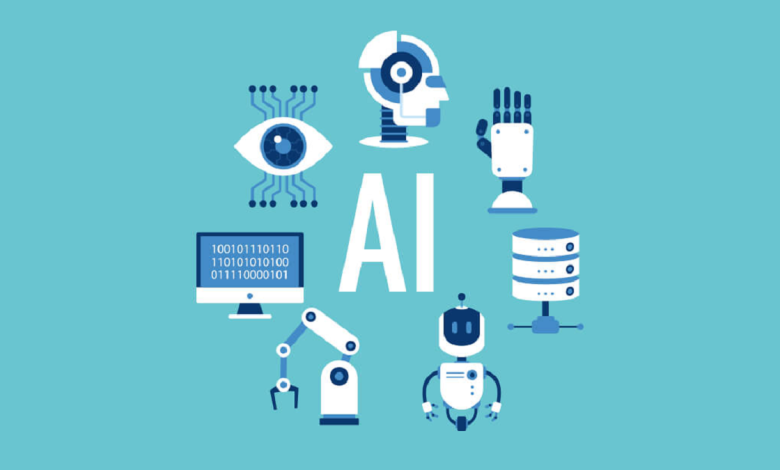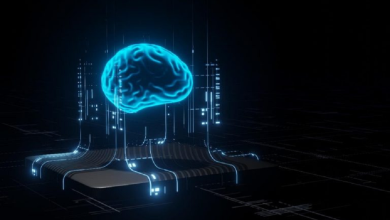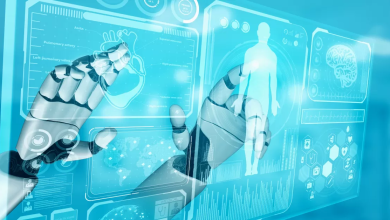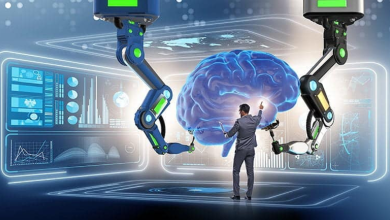Exploring the Evolution and Impact of Artificial Intelligence

Introduction to Artificial Intelligence (AI)
Artificial Intelligence (AI) has long been a concept that captivated the minds of scientists, researchers, and science fiction writers alike. It is the field of study and development of intelligent machines that can perform tasks that would typically require human intelligence. From the early stages of AI research to the present day, the progress and impact of this technology have been nothing short of remarkable.
The history and evolution of AI
The roots of AI can be traced back to the 1950s when computer scientists began exploring the idea of creating machines that could mimic human intelligence. In 1956, the field of AI was officially established during the Dartmouth Conference, where the term “artificial intelligence” was coined. Over the years, AI research has seen significant breakthroughs and advancements, leading to the development of various approaches and models.
In the 1960s and 1970s, AI research focused on symbolic reasoning and logic-based systems. These early AI systems were rule-based, relying on a set of predefined rules to make decisions and solve problems. However, they were limited by their inability to handle uncertainty and real-world complexity.

The different types of AI
As AI research progressed, different types of AI emerged, each with its own strengths and limitations. The two main categories of AI are:
Narrow AI
Narrow AI, also known as weak AI, refers to AI systems that are designed to perform specific tasks or solve specific problems. These systems are highly specialized and excel at their designated tasks but lack the ability to generalize or transfer their knowledge to other domains. Examples of narrow AI include voice assistants, recommendation systems, and image recognition software.
General AI
General AI, also known as strong AI or artificial general intelligence (AGI), refers to AI systems that possess the ability to understand, learn, and apply knowledge across a wide range of domains. General AI aims to replicate human-like intelligence and adaptability. While we have made significant progress in narrow AI, achieving true general AI remains a challenge.
Applications of AI in various industries
The applications of AI are vast and diverse, with virtually every industry benefiting from this technology. In healthcare, AI is used for medical image analysis, disease diagnosis, and drug discovery. In finance, AI algorithms are utilized for fraud detection, risk assessment, and algorithmic trading. AI-powered virtual assistants have become commonplace in our homes and smartphones, improving our daily lives with voice commands and personalized recommendations.
In the transportation sector, AI is revolutionizing autonomous vehicles and optimizing traffic flow. Manufacturing industries utilize AI for quality control, predictive maintenance, and supply chain optimization. AI is even making its way into the creative fields, with algorithms generating art, music, and literature. The possibilities are endless, and AI is transforming industries in ways we never thought possible.
The impact of AI on the job market
The rise of AI has sparked concerns about its impact on the job market. While AI has the potential to automate repetitive tasks and increase efficiency, it also raises questions about job displacement. It is true that certain jobs may be replaced by AI systems, but history has shown that technology often creates new opportunities and shifts the job landscape rather than eliminating jobs entirely.
AI is more likely to augment human capabilities and create new roles that require a combination of technical expertise and human skills. In fact, studies suggest that AI will create more jobs than it will replace. The key lies in reskilling and upskilling the workforce to adapt to the changing demands of the AI-driven world.

Ethical considerations in AI development
As AI becomes more prevalent in our lives, ethical considerations become increasingly important. AI systems can be biased, perpetuating existing inequalities and discrimination. Ensuring fairness, transparency, and accountability in AI algorithms is crucial to prevent unintended consequences. Ethical guidelines and regulations are being developed to address these concerns and promote responsible AI development.
Privacy is another ethical concern in the age of AI. With the abundance of data being collected and analyzed, protecting individuals’ privacy and ensuring data security are vital. Striking a balance between the benefits of AI and the protection of privacy is a challenge that needs to be addressed by organizations, policymakers, and society as a whole.
Challenges and limitations of AI
While AI has made significant strides, there are still challenges and limitations that need to be addressed. One major challenge is the lack of interpretability and explainability of AI systems. Deep learning models, for example, are often considered “black boxes” because they are difficult to understand and explain their decision-making process. This lack of transparency raises concerns about trust and accountability.
Another challenge is the need for large amounts of high-quality data to train AI models effectively. Data availability, quality, and bias can impact the performance and fairness of AI systems. Additionally, ensuring the safety and security of AI systems is critical, as vulnerabilities can be exploited by malicious actors.
AI in popular culture and science fiction
AI has captured the imagination of popular culture and science fiction for decades. From Isaac Asimov’s “I, Robot” to the sentient computer HAL in “2001: A Space Odyssey,” AI has been portrayed in various forms, often raising questions about the relationship between humans and machines. While some portray AI as a force for good, others depict dystopian scenarios where AI poses a threat to humanity.
Science fiction has both inspired and influenced AI research and development. Concepts such as autonomous robots, virtual reality, and intelligent machines have found their way from the pages of science fiction novels to the labs of AI researchers. The fascination with AI in popular culture reflects our collective hopes, fears, and curiosity about this transformative technology.
The future of AI: Trends and predictions
Looking ahead, the future of AI holds immense potential. AI will continue to advance, with breakthroughs in areas such as natural language processing, computer vision, and robotics. We can expect AI to play an increasingly prominent role in healthcare, education, transportation, and other sectors. AI-powered personalization and recommendation systems will become more sophisticated, enhancing user experiences across various platforms.
With the rise of AI, there will also be a growing focus on AI ethics and regulation. Striking the right balance between innovation and responsible AI development will be paramount. Collaboration between researchers, policymakers, and industry stakeholders will be crucial in shaping the future of AI and ensuring its benefits are accessible to all.





